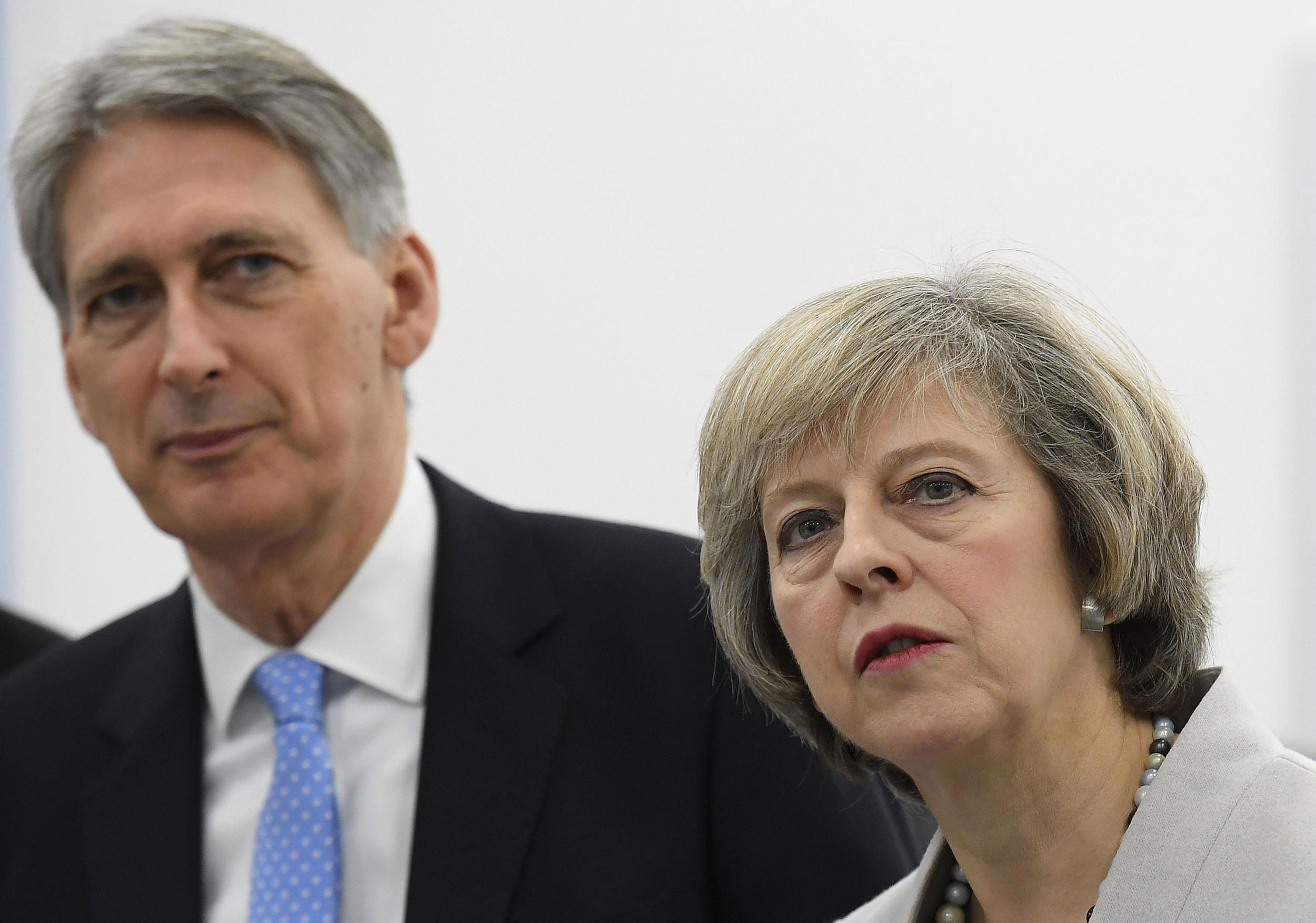In all the excitement about a National Insurance U-turn, few will notice that Hammond isn't telling us what he should be
He pretended to be saving money for the rainy day of Brexit, but now it has all been forgotten


If you are going to make a U-turn, make it quickly. Philip Hammond, the Chancellor, didn’t need to abandon his National Insurance increase until the autumn Budget, because it wasn’t planned to come into effect until April 2018. But he and the Prime Minister obviously thought that, if they were going to retreat, they should do it now.
It avoids the embarrassment of spending the summer defending the rise – and asking loyal Conservative MPs to defend the rise – and then admitting its critics were right.
The Chancellor published a letter to Conservative MPs just 20 minutes before Prime Minister’s Questions, rather sulkily insisting that his decision to raise National Insurance contributions in last week’s Budget was absolutely right, because the tax advantages of self-employment have encouraged a “sharp” increase in the numbers of people claiming to be self-employed. With equally bad grace, he claimed that his increase was “compliant” with the manifesto promise not to raise NICs, but that it wasn’t consistent with the spirit of it.
This is rubbish, of course, because the manifesto pledge was categorical: “no increase” in National Insurance and no increase in rates.
This was the line repeated by Theresa May at PMQs. So the Government’s line is, in effect, the tax advantage for self-employment is unfair, and getting more so, and we propose to do absolutely nothing about it.
The Chancellor’s letter said that he would recoup the costs of cancelling the National Insurance rise in the autumn Budget, but as he has now accepted that he is bound by the manifesto promise not to increase tax or National Insurance, it is hard to see how he could do that in a way that reduces the alleged advantages of self-employment.

This U-turn is small stuff in the wider scheme of the public finances. Hammond is now about half a billion short in the year before the next election (£645m in 2019-20), which he could easily get back from rounding adjustments in the forecasts for the economy. But he has been humiliated by losing the main measure of his Budget last week, which was supposed to pay for part of the increase in social care funding. Admittedly, that was a bit of presentational three-cuppery: only half of the £1.2bn put into social care in the fiscal year from next month was to be covered by the National Insurance rise two years later.
Hammond need not worry too much. In all the excitement about a U-turn, few will notice that, in effect, his Budget simply announced extra public spending without saying how it would be paid for. Precisely the opposite of what Hammond said he was doing. He made a great show in the Budget of saying that the slightly better public finances would not allow him simply to spend more. He pretended to be saving money for the rainy day of Brexit, but now that has all been forgotten.
Theresa May has learnt one thing from her predecessor, despite privately thinking that David Cameron was too smooth for his own good. One thing that Cameron was good at was making a quick U-turn at the first whiff of trouble, starting with that fuss over privatising the nation’s forests and ending with George Osborne’s disability benefit cut in last year’s Budget, which was abandoned less than a week later.
I wrote last week that Hammond would rescind the NIC rise, but thought he would do it quietly in the autumn. The speed of this U-turn – and Jeremy Corbyn’s utter failure to capitalise on it at PMQs – means that May will survive with her reputation for steadiness and resolution intact, however unjustified that may be.
Politics is a short-term business: most of us will have forgotten even that there are four classes of National Insurance contribution by the middle of next week.
Join our commenting forum
Join thought-provoking conversations, follow other Independent readers and see their replies
Comments